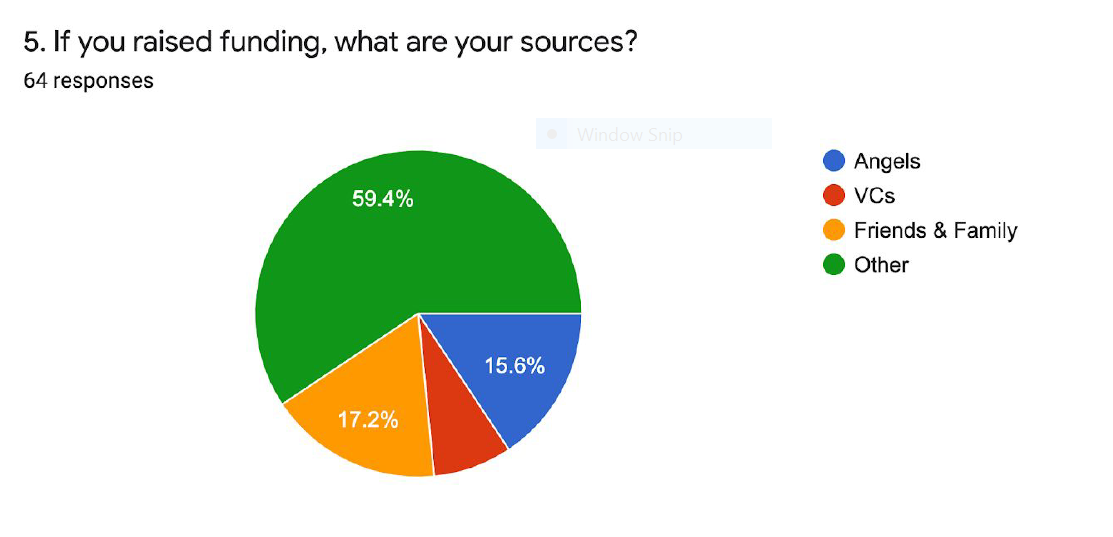Recent years have brought a surge of outside investment in legal technology and other “new law” companies. But a survey out today finds that women-founded new law companies received less than 1 percent of that investment over the last 10 years.
Dana Denis-Smith, CEO of Obelisk Support in London, conducted the survey on her own, poring over 10 years of data from Crunchbase. She identified some 3,500 U.S. and U.K. businesses in new law — which she defines as both pure legal tech and tech-enabled businesses.
Of the companies she found, 265 had at least one woman founder and 67 had a sole women founder. She then undertook to conduct a short, 10-question survey of as many of the women founders as she could (over a fairly short one-week period). She received responses from 64 women founders and co-founders.
Based on her research and surveys, Denis-Smith found that just under 1% of the formal investment in the new law sector overall had gone to companies founded solely by women.
This is notably lower than the already-low rate across industries. Yesterday, Fortune reported that the share of venture capital dollars that went to startups founded by one or more women had crept up to 2.7% of the total investment.
The research also found:
- Of the 10 largest fundraisers in legal to date, having raised a total of $1.8 billion, none had a sole woman founder. Among them, there were 18 male founders or cofounders and two women cofounders. Two companies had a sole male founder.
- During the 10-year period, the total raised by sole female founders in new law was $43.7 million.
- Of the top U.K. fundraisers, having raised over $100 million, there were no female founders.
- Of the top five female founders in mixed-gender founder teams, the total raised was $200 million.
Of the 64 women founders and cofounders who responded to the survey:
- 62% had taken no external investment of any kind.
- 8% had taken funding from friends or family.
- 19% had secured external funding.
Of those who had secured funding of any kind, the average amount they had raised was $202,000.
Why the Investment Gap?
Remarkably, women founders who responded to the survey reported being asked questions during fundraising such as the following:
- “Are you the cupcake or kid-thing on the agenda?”
- “Why don’t you just do this as a hobby for free?”
- “Can you add a male person to the Management Team for your pitch deck?”
- “Have you had your eggs frozen?”
“Driving real change requires determined action across the entire legal ecosystem,” says Denis-Smith. She suggests:
- Purchasers of legal services need to allocate budget to diverse teams across their providers. This means that general counsel and procurement leaders need to push for diversity not just among outside law firms, but also across alternative providers.
- Investors in new law businesses need to get past their apparent preconceptions about female founders and invest in women-led businesses to the same degree that they do for men-run businesses.
- Educators need to include business and technology courses alongside law, in order to produce a more-rounded legal professional and encourage entrepreneurs in the sector to flourish.
- Champions of entrepreneurial women in law need to be more vocal, helping to raise the profile of women who are successful in the field and open new doors for them.
Mirrors Results of 2018 Survey
A 2018 survey painted a similarly bleak picture of diversity among founders of legal tech companies, finding that women and people of color were significantly underrepresented among legal tech founders. (See my report here.)
Conducted by Kristen Sonday, cofounder and COO of legal tech startup Paladin, a pro bono management platform, that survey analyzed the backgrounds of 478 founders across 269 legal tech companies.
It found that women made up just 13.8% of legal tech founders, and that male founders outnumbered female founders in legal tech six to one.
[Featured image by WOCinTech Chat via Creative Commons license.]
 Robert Ambrogi Blog
Robert Ambrogi Blog
